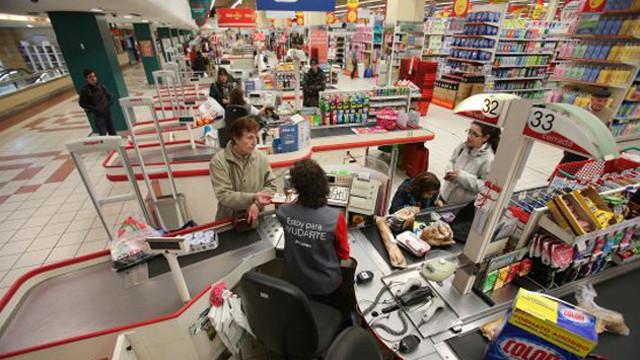The Strasbourg ECtHR upholds the State Attorney's appeal against the supermarket cashiers fired for stealing, and concludes that recording them at work does not violate their privacy since it was done with reasonable suspicion.
Recording a worker at his workplace with a hidden camera while he steals does not violate his privacy. This was determined by the Grand Chamber of the European Court of Human Rights (ECtHR) today after considering the appeal of the State Attorney's Office, against the January 2018 resolution in which the same court considered the privacy of five cashiers at a supermarket to have been violated. who were recorded with a hidden camera while robbing.
In its ruling, the ECHR determines that it does not consider Article 8 of the Human Rights Convention violated regarding the right to private and family life because the installation of cameras "was made based on reasonable suspicion." Furthermore, it considers the measure "proportionate" because it was only used to prove the alleged thefts of the workers.
The Grand Chamber considers that the Spanish norm complies with the law and that, therefore, it is up to the courts to assess the circumstances case by case to see to what extent the degree of intrusion into privacy is reasonable or not. It also rules out any violation of Article 6 of the Convention in relation to the right to a fair trial.
«Defense lawyers warn about the risk of the extension of the use of these devices to control work performance»
From Colectivo Ronda, a law firm that has defended the workers, they regret the decision and remember that "it puts the privacy of all of us in our workplaces at risk." Specifically, lawyer José Antonio González from Strasbourg states that it is "an abusive provision because we are forced to give up part of our sphere of privacy in exchange for no type of consideration." In this way, they warn about the extension of the use of these devices to control work performance and put it in a context of expansion of the management power of companies.
Background
The case resolved today by the ECHR refers to a group of Mercadona cashiers from the town of Sant Celoni (Barcelona). After noticing notable differences between the stock that appeared in the inventory and the sales data, those responsible for the center installed video cameras at the entrance and exit entrances to the supermarket aimed at controlling and preventing the possible commission of theft by customers. The staff was informed about the installation of these cameras, as required by regulations. However, the workers (nor their representatives) were not informed that other cameras would also be installed, in this case hidden, dedicated to employee surveillance.
The ECtHR ruling of January 2018 considered that the Spanish courts failed to fulfill their duty to protect the right to privacy under the terms of Spanish legislation and the Human Rights Convention by dismissing the workers for committing theft of goods. food when they had been recorded with a hidden camera that they did not know about.
In this ruling, it forced Spain to compensate the dismissed workers with 4,000 euros and reminded companies of their obligation to inform anyone who undergoes video surveillance in their workplace of the existence of cameras.

